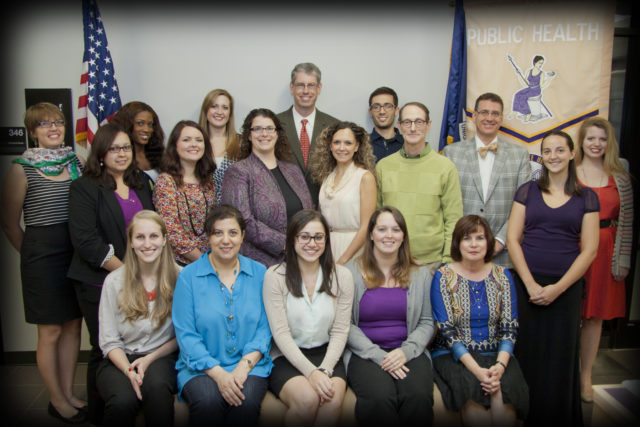The Women and Their Children’s Health study is a five year study funded by the National Institute of Health. We are investigating the health of women and children following the Deepwater Horizon Oil Spill. We began recruiting women to participate in our study in 2012. To date we have interviewed over 2800 women and over 600 children about their health since the oil spill. We are now conducting follow up interviews with those women to understand how this and other disasters affect the health of women in southeast Louisiana.
833-814-1800
thewatchstudy@unmc.edu
Edward S. Peters, DMD, SM, SM, ScD
Department Chair and Professor, Epidemiology
University of Nebraska Medical Center College of Public Health
epeters@unmc.edu
1-833-814-1800
LSU/NIH info
NIH Deepwater Horizon Research Consortia
The National Institute of Health
The National Institute of Environmental Health Gulf Oil Spill Response
Deepwater Horizon Oil Spill Background
The following sites offer information on the 2010 Deepwater Horizon spill and its cleanup:
National Oceanic and Atmospheric Administration (NOAA) Deepwater Horizon/BP Oil Spill Archive: http://response.restoration.noaa.gov/deepwaterhorizon
RestoreTheGulf.gov (the official federal portal for the Deepwater BP oil spill response and recovery): http://www.restorethegulf.gov/
Deepwater Horizon Court-Supervised Settlement Program:
http://www.deepwaterhorizonsettlements.com/
The Huffington Post’s spill coverage:
http://www.huffingtonpost.com/news/deepwater-horizon-oil-spill
Confidentiality
The identity of all study participants will be kept confidential. The interview answers and information obtained will be entered into a computer and labeled only by a study number. The results of the study may be released to the funding agency, the National Institutes of Health. If the results of the study are published or discussed in conferences, the privacy of subjects will be protected and their names will not be identified or used in any way. Your personal information may be disclosed only if required by law.
Laws determine what we can and cannot do. A law called The Federal Privacy Act protects your information. We label your samples, questionnaires, forms, and other information with a special code instead of your name. We store information needed to contact you separately. We keep everything in locked cabinets and on secure computers. Only authorized staff see your private information. But, we cannot guarantee that we will never have to give out information. In extremely rare cases, researchers have been required to give the information collected during a research study to members of Congress, law enforcement officials, or other authorized people. However, even in those cases, we try to protect your identity.
For added protection, the study also has a Certificate of Confidentiality, which helps us protect the privacy and confidentiality of people in the study. The Certificate helps to prevent us from being forced to give out information that could identify you in a court of law. Even with the Certificate of Confidentiality, however, we must report some things we observe during the home visit, such as child abuse. We may report other things, such as indications that someone may be planning to hurt themselves or others.
Organizations that may inspect and/or copy your study-related records for quality assurance and data analysis include: the LSUHSC-NO Institutional Review Board and the investigators and their staff. In addition, we may share de-identified (anonymous) data with the National Institutes of Health as part of their study of Gulf oil spill cleanup workers. While every effort will be made to maintain your privacy, absolute confidentiality cannot be guaranteed. Records will be kept private to the extent allowed by law. We will put information from this study into databases that others may use. Researchers may apply to use the data. Researchers who request coded study information must agree that they will use the information only for the approved research. They must agree not to identify individuals. They also must agree not to try to contact individuals in the study. We will combine the results for everyone in the study for scientific papers and presentations. We will report only summary information and not show your individual results in any reports or presentations.



